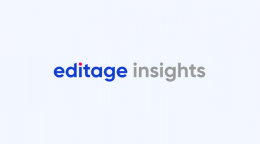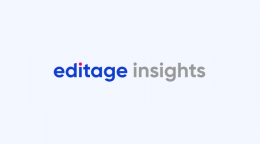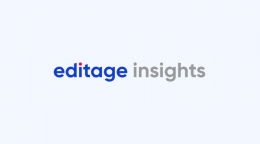Ethical declarations and journal submissions: 3 Things to keep in mind

Recently, a researcher brought up the topic of ethics in research and how a simple oversight had led to rejection. This fueled a discussion about ethical declarations and related issues at the journal submission stage, which highlighted how little authors know about this topic. This deficiency is underlined by a 2018 Editage Global Author Survey, which reveals that 10-25% of respondents didn’t know or were confused about what plagiarism means, duplicate submissions, and determining authorship, while 31% had never heard about global ethics-related bodies such as COPE (Committee on Publication Ethics) or ICMJE (International Committee of Medical Journal Editors).
Scientific research is based on trust, integrity, and the ethical conduct of researchers across the globe. On the other hand, growing commercialization and competition is chipping away at the ethical principles that guide scientific research and publication.Renowned American computer scientist Bill Joy once said, “We can’t simply do our science and not worry about the ethical issues.” Any kind of ethical misconduct in research can lead to desk rejection, article retractions, hurt your academic career, and even discredit authors and their research findings. The best way for authors to avoid this quagmire is to learn more about publishing ethics and check your manuscript readiness before submission. Here’s something to get you started.
Questions authors ask about ethical declarations
Journals place ethical misconduct high up in the order when it comes to evaluating manuscripts. Even novel, high impact research can face problems at submission stage if they fail ethical guidelines. Here are some key questions we received about ethical declarations needed at the journal submission stage.
Q. Disclosure of conflicts of interest: What do journals expect from authors?
A conflict of interest arises whenever there is any potential bias that could affect a researcher’s work, or influence the editor’s or peer reviewer’s responsibilities in the publication process. Most journals have a formal policy requiring a declaration of conflicts of interest at the time of submission. Such conflicts are most commonly due to personal, financial, and professional affiliations or relationships. And while it is common, the best approach is full disclosure to the journals that you are submitting your manuscript to.
Authors should submit a statement declaring that any financial support or commercial gains (gifts, funding, sponsorship, etc.) for the study has been acknowledged, and confirm that you have not signed any agreement with the sponsor that will bias the research results. Additionally, any personal bias or professional relationship that can be viewed as a potential conflict of interest should be disclosed in the cover letter. The lack of potential conflicts of interest should also be declared at time of submission. For more clarity, refer to ICMJE guidelines and use the form provided there or check if your target journal has a specific form for this ethical declaration. Remember, failure to declare any competing interests may lead to journal rejection or retraction of your paper when identified.
Q: Is submitting a paper in different languages duplicate submission or publication?
Not only does simultaneous submission waste the time and effort of the editors and reviewers, it raises the risk of duplicate publication and copyright issues. Submitting one or even two similar papers to two different journals at the same time is unethical, so it’s advised to immediately withdraw your work from one paper. The ideal solution would be to wait until your article is published in a journal, then submit a translated version as a secondary publication, with the consent of both journal editors; be sure to check out the ICMJE stipulated guidelines. When you request a manuscript withdrawal, wait until this request is confirmed; if you’re facing delays, check the submission status or reach out to the editor for updates but don’t submit to another journal while waiting to hear from the first.
Manuscript submission-related misconduct extends to the practice of combining smaller papers and submitting it as one comprehensive manuscript or salami slicing research results to publish it as smaller, incremental articles and increase the publication list.
To avoid such ethical logjams, most journals ask authors to declare that the manuscript has not and will not, even partly, be submitted or published elsewhere. Authors must also declare if any part of the content has been published in academic conferences, as preprints, or via journal communications; and get signed permissions to use data (figures/tables) from previously published work.
Q. Does my research project need ethical approval?
Any research that includes human or animal subjects would need to get ethical approvals by a properly constituted ethical approval committee/Institutional Review Board even before the project begins. Not only that, you also need to obtain informed written consent from the participants in the study. If there are children involved, researchers need to ensure they have informed consent from the parents, legal representatives or guardians. These ethical declarations need to be submitted to the journal along with your manuscript, without which your paper may not be accepted for publishing.
These statements indicate that your research project has been conducted ethically, keeping in mind privacy, consent and appropriate reporting of those involved in the study. Any use of patient data, case studies, or other related information in your manuscript without approval from relevant bodies and participants is unethical and can lead to rejection. If authors are unable to obtain participant consent, they are required to remove all data pertaining to that subject from the manuscript, including illustrations and other supplementary materials, before they submit to a journal.
By understanding these ethical issues, you’re more likely to deliver an original, unbiased manuscript that mirrors your brilliant science. Once you are ready with the relevant ethical declarations, ensure you’ve got a publication-ready article by putting your work through R Pubsure’s submission readiness check.
How can R Pubsure work for you?
Quick, efficient, and accurate, R Pubsure is a reliable tool for researchers looking to simplify and speed up the submission process. Developed to support authors at a key step of their publication journey, and flexible enough to suit individual needs, R Pubsure’s advanced AI puts manuscripts through a series a checks, including ethical declarations, authorship, references, and language. Authors receive a detailed R Pubsure Report showing areas or improvement, and top-scoring manuscripts receive the shareable R Pubsure Certificate of submission readiness. Delve deeper with R Pubsure Pro, which does a plagiarism check and delivers a downloadable document with suggested revisions for your approval, saving you hours of time spent on corrections.
Top international journals place high importance on proper research conduct and expect authors to deliver manuscripts that adhere to the highest standards of publishing ethics. As authors, it is crucial to check and conform to the guidelines set by global organizations and submit all the ethical declarations at time of journal submission. If you’re wondering whether your manuscript is submission ready, simply register to R Pubsure now and be sure with a comprehensive manuscript submission readiness check!
Comments
You're looking to give wings to your academic career and publication journey. We like that!
Why don't we give you complete access! Create a free account and get unlimited access to all resources & a vibrant researcher community.

Subscribe to Conducting Research













